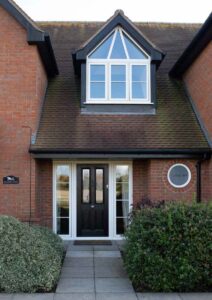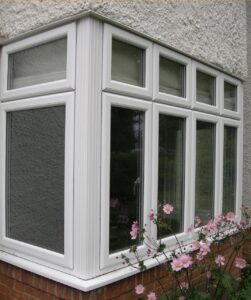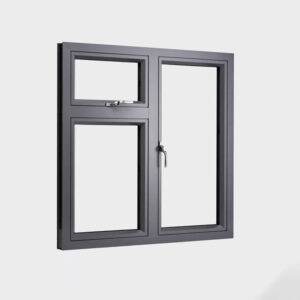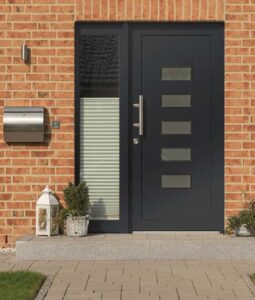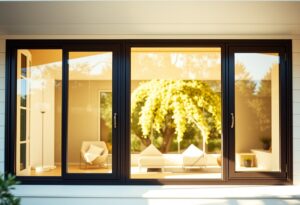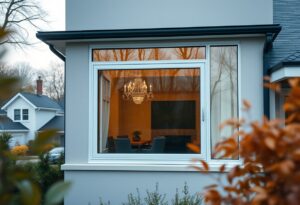Perplexed about the disparities between casement and double-hung windows? Look no further, as we delve into the intricate details of these two popular window styles. Both types have their own unique characteristics, which can significantly impact your home’s aesthetics, energy efficiency, and functionality. Casement windows, hinged on the side and opened with a crank, provide superior ventilation and a tight seal, whereas double-hung windows, with two vertically sliding sashes, offer ease of maintenance and versatile design options. It’s crucial to understand the differences in operation, energy efficiency, and maintenance requirements before making a decision that could greatly impact your home. In this blog post, we’ll provide a comprehensive comparison to help you make an informed choice for your next window installation project.
Key Takeaways:
- Casement windows open outwards with a side hinge, providing unobstructed views and excellent ventilation.
- Double-hung windows consist of two sashes that slide up and down, allowing for easier cleaning and better control over airflow.
- When considering energy efficiency, casement windows offer better sealing as they close against the frame, while double-hung windows may be prone to air leaks.
- For security, casement windows are more difficult to force open from the outside, making them a safer option for ground-level windows.
- Style and maintenance considerations should also be taken into account when choosing between casement and double-hung windows, as they each offer different aesthetics and cleaning requirements.
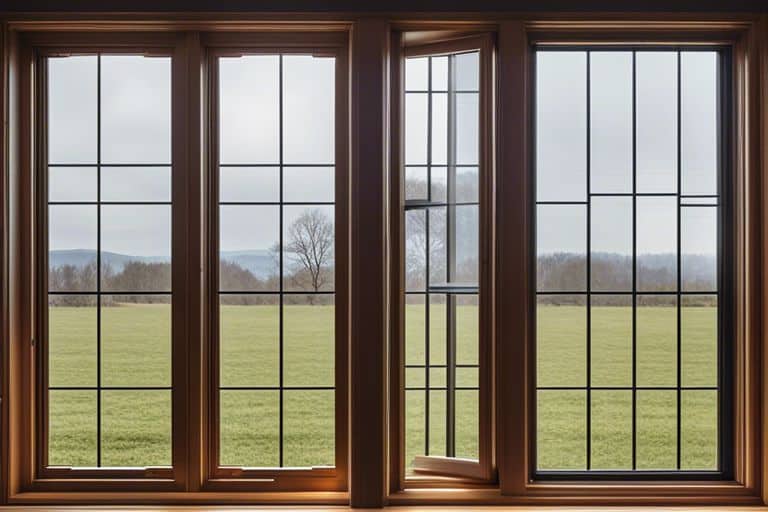
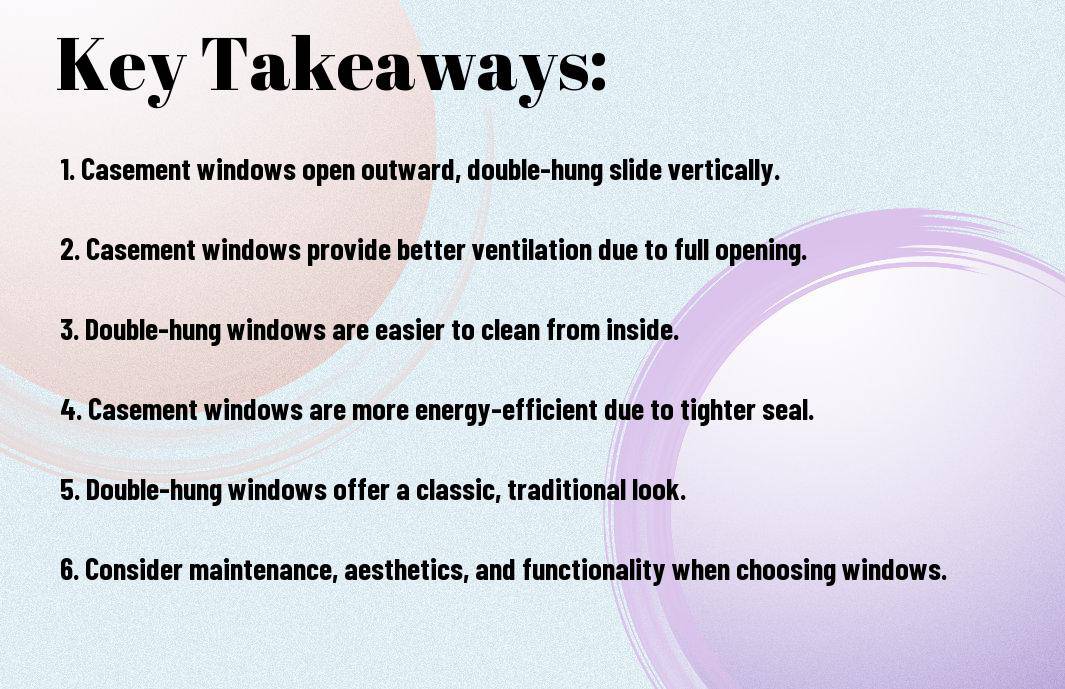
Casement Windows
Definition and Design
Casement windows are hinged at the side and open outward to the left or right. They are often operated using a crank, lever, or cam handle, making them easy to open and close. This design allows for maximum ventilation as the entire window opening is unobstructed when the window is open. Casement windows come in a variety of materials such as wood, uPVC, and aluminium, and can be customised to fit different architectural styles.
Pros and Cons
| Pros | Cons |
| Excellent ventilation | Potential for obstruction from foliage or furniture |
| Tight seal when closed | May be more prone to damage in strong winds |
| Modern, sleek appearance | Some concerns about security |
| Energy-efficient when sealed properly | Higher initial cost compared to some window types |
It’s important to note that while casement windows offer excellent ventilation and a tight seal when closed, they may also be more prone to damage in strong winds and could potentially pose security concerns. Additionally, their sleek appearance and energy-efficient qualities need to be weighed against the higher initial cost and potential obstruction issues.
Common Usage and Applications
Casement windows are commonly used in modern and contemporary homes, as well as in kitchens and bathrooms where maximum ventilation is desired. They are also popular in areas with scenic views, as the unobstructed window opening allows for an uninterrupted view of the outdoors. Additionally, casement windows can be an ideal choice for those looking to add a touch of elegance to their homes while enjoying the benefits of natural light and fresh air.
Double-Hung Windows
Definition and Design
Double-hung windows are a classic and timeless window style that features two sashes that slide vertically within the frame. This design allows for both the top and bottom sashes to be opened, providing excellent ventilation and easy cleaning accessibility. The traditional aesthetic of double-hung windows makes them a popular choice for both modern and traditional homes.
These windows are typically constructed with a vertical meeting rail, creating a more seamless and symmetrical appearance. They are available in a variety of materials, including wood, vinyl, and aluminium, allowing homeowners to choose the best option for their needs and preferences.
Pros and Cons
| Pros | Cons |
| Excellent ventilation | Potential for air leakage |
| Classic and versatile design | More complex maintenance |
| Easy to clean | May require more frequent repairs |
| Energy-efficient options available | Higher initial cost |
Double-hung windows offer superior ventilation and a timeless aesthetic, making them a popular choice for homeowners seeking both functionality and style. However, they may require more maintenance and have a higher initial cost compared to other window styles.
Common Usage and Applications
Double-hung windows are commonly used in a wide range of residential applications, from single-family homes to multi-storey apartment buildings. Their versatility and classic design make them well-suited for various architectural styles, including Victorian, Colonial, and Craftsman homes. These windows are often installed in bedrooms, living rooms, and kitchens, providing an elegant and functional solution for natural light and ventilation.
Whether you’re renovating a historic property or building a new home, double-hung windows can complement the architectural style while meeting modern energy-efficiency standards.
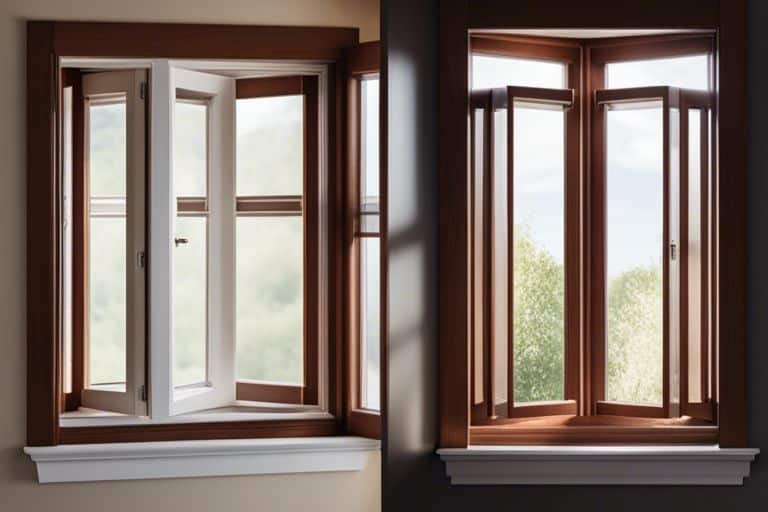
Comparing Casement and Double-Hung Windows
When it comes to choosing between casement and double-hung windows, there are several factors to consider. Understanding the differences in airflow and ventilation, maintenance and cleaning, aesthetics and styles, energy efficiency, and safety and security is crucial in making the right decision for your home.
Airflow and Ventilation
Both casement and double-hung windows offer their own advantages when it comes to airflow and ventilation. Casement windows, with their side-hinged design, open fully to allow for maximum airflow into the room. On the other hand, double-hung windows have two operable sashes which can be adjusted to control the amount of airflow. This makes casement windows ideal for rooms that require more ventilation, while double-hung windows provide flexibility in adjusting the airflow.
Maintenance and Cleaning
When it comes to maintenance and cleaning, casement windows are easier to clean due to their outward swinging design, which allows for convenient access to both sides of the glass. On the other hand, double-hung windows require more effort for cleaning as they have a vertically sliding design. Both types of windows require regular maintenance to ensure smooth operation and longevity.
It is important to note that choosing the right type of window can depend on the homeowner’s preferences and the specific needs of the property, so it’s always great to consider these factors before installation.
Aesthetics and Styles
Casement windows are known for their modern and sleek look, making them a popular choice for contemporary homes. On the other hand, double-hung windows have a traditional and timeless look, making them suitable for classic or historical properties. It’s important to choose a window style that complements the overall aesthetic of the home and enhances its visual appeal.
When choosing between casement and double-hung windows, it’s important to consider the architectural style of the property and personal preferences regarding the visual appeal of the windows.
Energy Efficiency
Both casement and double-hung windows can contribute to the energy efficiency of a home. Casement windows provide a tight seal when closed, reducing drafts and increasing energy efficiency. Double-hung windows offer the flexibility of opening either the top or bottom sash to control airflow, which can contribute to better ventilation and energy efficiency. It’s important to choose windows with high energy efficiency ratings to keep the home comfortable and reduce energy costs.
Safety and Security
When it comes to safety and security, both casement and double-hung windows can be equipped with locks and other security features to ensure the safety of the property. Casement windows typically have hook-shaped locks embedded in the frame, providing added security when closed. Double-hung windows can also be equipped with secure locking mechanisms to prevent intrusions. Ensuring that the chosen windows offer high levels of safety and security is essential for peace of mind.
Ultimately, making the right choice between casement and double-hung windows depends on a homeowner’s preferences, the specific needs of the property, and the desired aesthetic and functional benefits of each window type.
Choosing the Right Window for Your Home
When it comes to choosing the right windows for your home, it’s important to consider the differences between casement and double-hung windows. To help you make an informed decision, check out this Casement Windows vs Double Hung: A Comparison Guide for a detailed comparison of the two types.
Considerations Based on Climate
When selecting windows for your home, it’s crucial to consider the climate in your area. Double-hung windows are well-suited for moderate climates, providing good ventilation and allowing for easy cleaning. On the other hand, casement windows are more airtight, making them suitable for areas with extreme weather conditions, offering better insulation and protection against drafts.
Matching Windows to Home Architecture
Choosing the right window style can greatly impact your home’s aesthetics. For traditional or period homes, double-hung windows are often preferred as they complement the classic architecture. On the other hand, the contemporary design of casement windows makes them ideal for modern and minimalist homes. It’s important to consider the overall look and feel of your home when choosing between the two styles.
For more tailored advice on matching windows to your home architecture, consider consulting a local window specialist who can provide personalised recommendations based on your property’s unique features and historical significance.
Balancing Cost and Quality
When deciding between casement and double-hung windows, it’s essential to strike a balance between cost and quality. While casement windows may offer better energy efficiency and security features, they typically come with a higher price tag. On the other hand, double-hung windows are more cost-effective and can still provide adequate ventilation and insulation. It’s important to weigh up the initial investment against the long-term benefits to determine the best option for your home.
Factors such as maintenance, lifespan, and energy efficiency should also be considered when balancing cost and quality, as these aspects can impact the overall value and performance of your windows in the long run.
Understanding the Differences Between Casement and Double-Hung Windows
In conclusion, it is clear that there are significant differences between casement and double-hung windows, both in terms of their design and functionality. While casement windows offer better ventilation and a more contemporary aesthetic, double-hung windows are more traditional and provide easier cleaning and maintenance. It is important for homeowners to carefully consider their specific needs and preferences when choosing between these two window styles. By understanding the differences between casement and double-hung windows, individuals can make informed decisions that will enhance the appearance and functionality of their homes.
FAQ
Q: What are the key differences between Casement and Double-Hung Windows?
A: Casement windows are hinged at the side and open outwards, while double-hung windows have two sashes that slide up and down.
Q: Which type of window is more energy-efficient?
A: Casement windows are generally more energy-efficient as they provide a tighter seal when closed, reducing air leakage.
Q: Are casement windows more effective for ventilation compared to double-hung windows?
A: Yes, casement windows are better for ventilation as they can be fully opened, allowing for maximum airflow.
Q: In terms of maintenance, which type of window is easier to clean?
A: Double-hung windows are easier to clean as both sashes can be tilted inwards, allowing for easy access to the exterior glass surfaces.
Q: Which type of window is more suitable for modern or traditional style homes?
A: Casement windows are a popular choice for modern homes due to their clean lines and unobstructed views, while double-hung windows are often preferred for traditional style homes.

